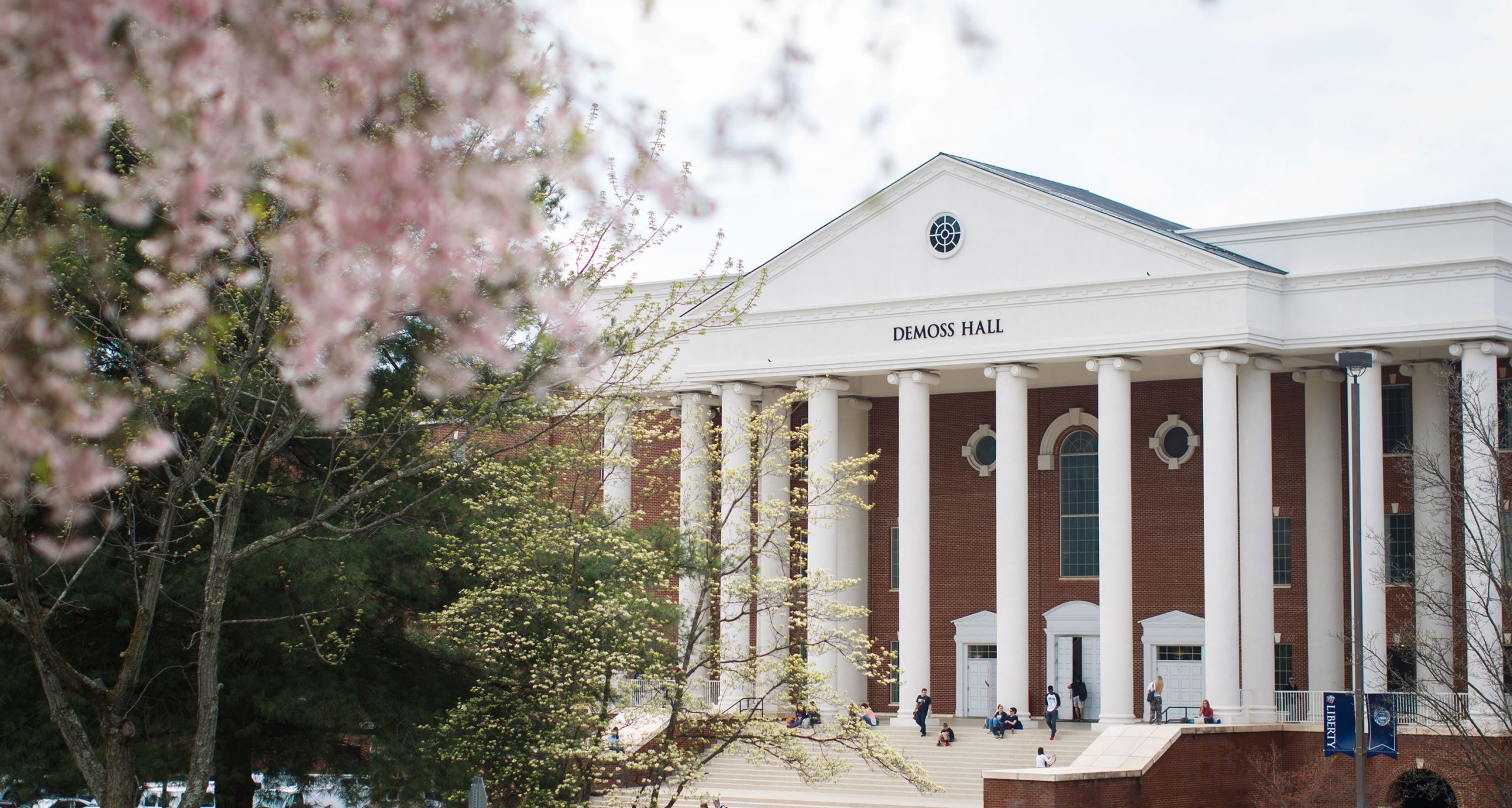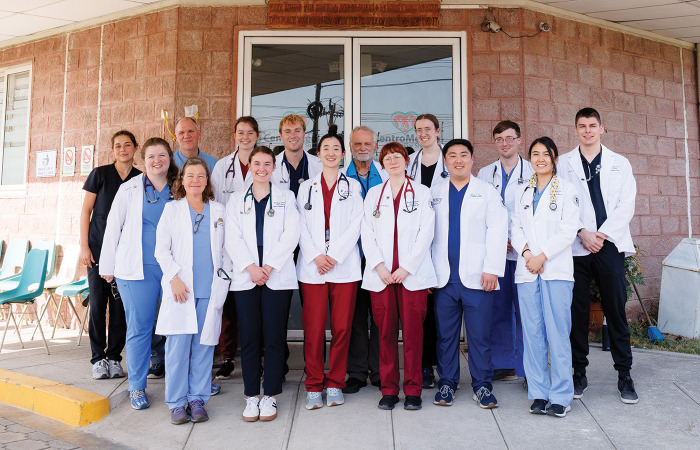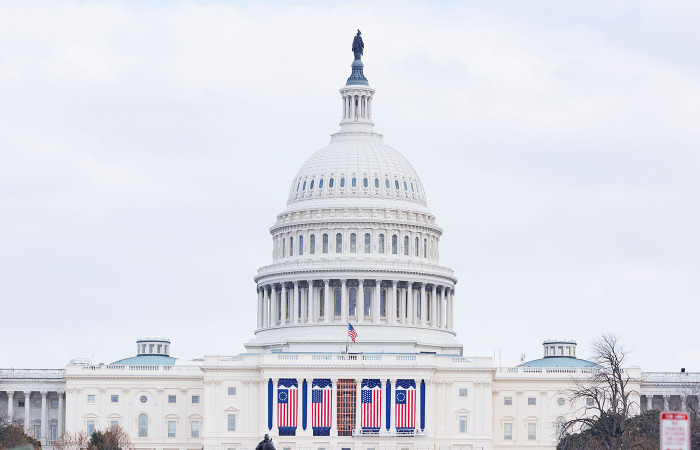This is big. You don’t want to miss this. Take notes.
That’s essentially what the Chronicle of Higher Education said to the world of academia earlier this year after a reporter explored the inner workings of Liberty’s online operations to account for its success as the world’s largest Christian university.
The publication is the leading source of news for university faculty members and administration. In the article, “An Online Kingdom Come: How Liberty U. Became an Unexpected Model for the Future of Higher Education,” writer Jack Stripling recognized Liberty’s rapid growth, with enrollment now higher than any other nonprofit college in the United States.
Liberty’s formula for success may come as a surprise to those in higher education, especially given the school’s intentional Christian mission and its relatively young age — 44 years — among century-old institutions. But, as Stripling writes, “College leaders, grappling with how to position their institutions for the future, might want to take a closer look” at Liberty.
That closer look will reveal a “giant online,” as the heading reads on a growth chart accompanying the article. The chart showed a 740-percent increase in the number of Liberty’s online students from 2004-05 to 2013-14. With more than 95,000 students studying online and another 13,500 taking courses on campus, Liberty is now the nation’s largest, private nonprofit educator.
While the Chronicle story pointed out that other academic institutions have acknowledged the significance of online degree programs, it said Liberty “has carved out a distinct online identity in a relatively new market and created an Internet education machine that generates revenues any college would welcome.”
That’s partly because Liberty got ahead of the game. A pioneer in distance learning, Liberty first began offering these courses in 1985 with videotaped lectures and test materials delivered by mail. President Jerry Falwell told the Chronicle: “By 2005, when everybody started getting high-speed Internet in their homes, we were just poised in the perfect position to serve that huge market of adults.”
Now, with more than 200 areas of study from the certificate to the doctoral level, this convenient, affordable form of education is an open door for those who wish to advance their careers — or pursue the career they always dreamed of — without uprooting their families and leaving their jobs to attend classes on campus.
Unlike some major online universities, though, Liberty’s online students can make a real connection to a residential campus — one that is thriving with a range of student activities, NCAA Division I athletics, and an environment that encourages spiritual growth. Online students have opportunities to visit their campus for one-week intensive courses and can turn their tassels with fellow classmates at Commencement. They can also follow Liberty’s athletics teams on television and online; many show up in the stands to support the Flames when they are playing nearby. An Internet network for online students, www.Liberty.edu/OnlineCommunities, hosts live streams of campus events and offers many resources for Christian living.
Connecting students who are studying online is just one of the “Lessons from Liberty” highlighted in the article. As the world becomes increasingly segmented by technology, online programs can almost, by definition, perpetuate a sense of loneliness and feeling disconnected. “Students on Liberty’s residential campus are part of a tight-knit community,” Stripling writes, pointing to the university’s ability to “export the ethos online.”
Another lesson other institutions could learn from Liberty is to “Know Your Market.” The average age of a Liberty online student is 36, and he or she prefers a flexible schedule of eight-week courses that are infused with Christian values. “The university has built its programs to serve this population,” Stripling writes.
The courses are also firmly aligned with its mission.
“Every online student takes at least nine credit hours with a biblical emphasis, tying the university’s mission to its programming,” Stripling writes. Richard A. Hesel, a principal at Art & Science Group, a top consulting firm providing strategic market research and recommendations to institutions of higher education, agrees. “That is a critical factor in their (Liberty’s) success.”
“There is no denying that the university (Liberty) has carved out a distinct online identity in a relatively new market and created an Internet education machine that generates revenues any college would welcome.” — The Chronicle of Higher Education
Also highlighted was Liberty’s unashamed stance in differentiating itself by tying not only its educational programming, but also its entire identity, to its mission. “Any college that defines itself more narrowly, as Liberty has done with its Christian mission, necessarily turns off some prospective students,” Stripling writes. “But the brand is stronger for it.”
Hesel reiterates: “There are too many places that want to be all things to all people.”
Liberty’s venture into virtual education has been tied to its original mission from the beginning, as the Chronicle showed, quoting President Falwell: “We’re using technology to take it to the next levels.” The steadfast commitment of Liberty’s administration and faculty (both online and residential) to never compromise its mission to develop Christ-centered men and women with the values, knowledge, and skills essential for impacting tomorrow’s world is at the core of all that is accomplished at Liberty — and from there, the blessings flow.
The Chronicle isn’t the only media organization to focus its attention on Liberty’s success. In a 2013 Washington Post article, “Virginia’s Liberty Transforms into Evangelical Mega-university,” reporter Nick Anderson took notice of the impressive growth of Liberty’s online programs. He wrote: “The surging enrollment for a bastion of Christian conservatism in the central Virginia foothills highlights the school as a market leader at the crossroads of religion and higher education. Liberty figured out how to recruit masses of students via the Internet years before elite universities began ballyhooed experiments with free online courses.”
The Post, the Chronicle, and USA Today have all pointed to Liberty’s strong financial standing as another reason it is perfectly positioned to support future growth. Liberty’s net assets grew from approximately $100 million in 2007 to over $1.4 billion in 2012, making it the first evangelical Christian university — and one of the youngest universities ever — to reach that mark. With this stability, Liberty has earned a place among the nation’s highest-rated universities for financial strength as determined by Standard & Poor’s and Moody’s Investors Service.
Liberty’s “nest egg,” the Chronicle reported, “is on par with the endowments at major research universities, such as Baylor and Tulane.” As The Washington Post conveyed, “Flush with cash, Liberty is building a huge, $50 million library (completed in January 2014), replacing old dormitories, and angling to place its Flames football team in a conference eligible for NCAA bowl games.” USA Today reported in 2013 (“Jerry Falwell’s Legacy: A Thriving Liberty University”) that Liberty is unlike most private nonprofit colleges, which “have remained cautious with their budgets amid lingering economic uncertainty.”
The direction Liberty has been heading in is, indeed, turning heads. The Chronicle reached out to experts on education theories, including Michael B. Horn, co-founder and executive director of the Clayton Christensen Institute for Disruptive Innovation, who said Liberty’s success “may be that they are not trying to be like everybody else. Higher education is ignoring it at its own risk.”
“Any college that defines itself more narrowly, as Liberty has done with its Christian mission, necessarily turns off some prospective students. But the brand is stronger for it.” — The Chronicle of Higher Education
In the words of President Jerry Falwell, “We’ve always sort of been the cowboy. We do it our own way.”
That sailing-straight-ahead approach, with the wind of its mission firmly at its back, has brought Liberty to a position previously unclaimed by any institution of higher learning. An “Online Kingdom Come” is one way a reporter described it. A university that is meeting people where they are and providing an education that trains them to become Champions for Christ to impact their world? That is Liberty University.




